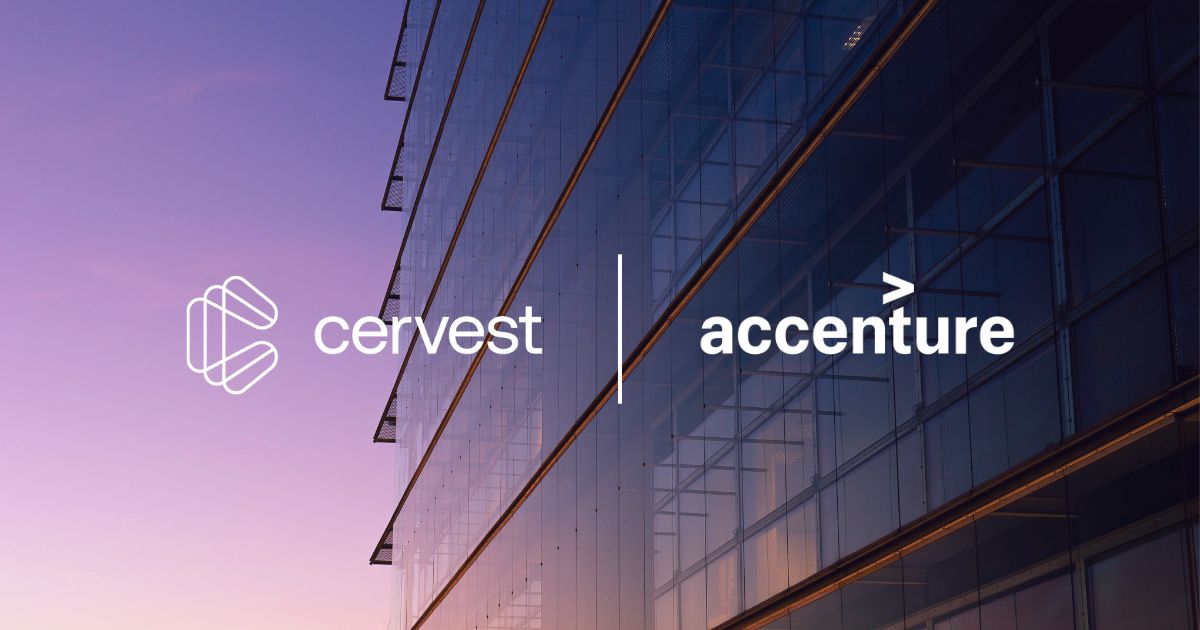Cervest and Capgemini: Helping organizations build a more sustainable future

Empowering action is the key motivation bringing Cervest and Capgemini together: to move organizations beyond sustainability commitments and compliance and toward meaningful implementation and outcomes. Iggy Bassi, Founder and CEO of Cervest, joins Capgemini Invent UK’s Vice President of Sustainability Solutions, Courtney Holm, to share how.
Over the last few years, the impacts of extreme weather events across the world have made it clear that when it comes to climate action, Net Zero commitments are necessary, but on their own, not enough. The increasing concentration of greenhouse gas already emitted, has committed the world to decades of climate volatility. Heat waves, wildfires, floods, and droughts in 2022 have demonstrated not only the direct impacts of our changing climate, but the associated ripples transmitted throughout economies and communities in the forms of devastating impact on business operations and infrastructure, increased social inequalities, and widespread displacement.
The cost of climate change cannot be understated. Economic losses from natural disasters were estimated at USD343 billion in 2021. If we carry on with a business-as-usual climate emission scenario, we are likely to see over USD23 trillion worth of economic losses, roughly 11 - 14% of projected global economic output by 2050. Companies want to understand as concretely as possible what this means for their future businesses and what they can do about it. According to a Cervest survey, 88% of the participating companies have already seen a corporate physical asset, such as an office or warehouse, affected by extreme weather. The same report highlights that an overwhelming majority of decision-makers - 83% - believe climate volatility poses a “medium to significant” risk to their business bottom line.
That’s why one of the responses Capgemini is seeing is an increasing interest among its clients in climate risk analysis. Using Cervest’s climate intelligence (CI) product, EarthScan™, Capgemini can support its clients to move beyond reporting to climate adaptation action which aims to limit future disruption and build climate resilient businesses.
How Cervest and Capgemini can unlock climate action
Cervest and Capgemini’s collaboration is all about extending the capability to integrate climate change into every decision using Cervest’s climate intelligence. Through their network covering extensive sectors, including energy and utilities, financial services, manufacturing, automotive, life sciences, telecommunications and media - Capgemini are effectively placed to do just that.
Cervest provides the means for action by providing climate intelligence - asset-centric insights on climate risk to inform prioritization and adaptation decisions. Through their climate intelligence product EarthScan, Cervest offers a unified, comprehensive picture of climate-related risk to assets, creating visibility of multiple climate hazards at a granular level. Insights are provided on hazards, such as flooding, drought, wildfire and extreme temperatures, across multiple climate scenarios, backwards in time to 1970 and ahead to 2100.
Capgemini is facilitating action by building consulting solutions based on EarthScan Insights. Capgemini wants to help clients embed all aspects of sustainability into their business processes, workflows, and services, recognizing that understanding physical risk to assets is essential for organizations to make informed adaptation decisions.
Using CI to drive action on climate adaptation
For many companies, the doorway into climate adaptation planning is climate risk disclosure and reporting–whether through voluntary reporting aligned to the Task Force on Climate-related Financial Disclosure (TCFD) framework or compliance with regulations in countries around the world. As these rules differ across jurisdictions, Capgemini has seen reporting become an increasingly significant and resource-intensive undertaking for its clients, especially those who work across different regulatory requirements. Cervest’s climate intelligence platform streamlines and simplifies reporting, making it easier for organizations to share auditable climate risk information fit for regulators.
The insights provided by EarthScan go beyond disclosure and provide value for multiple stakeholders and functions – from board meetings, M&A and due diligence decisions, real estate investments, to supply chain management. Capgemini collaborates with Cervest to work with companies across sectors and geographies and is finding more and more use cases for climate intelligence. A recent use case applied climate intelligence to evaluate the durability of different carbon offset projects. What lies beyond the work of disclosure and reporting is a new way of operations, and this is what climate intelligence is revealing.
When it comes to adaptation, Capgemini is finding that some companies are seeking to move past understanding their climate risks toward making proactive plans to adapt the assets they own or operate. Forward-looking companies recognize how critical getting climate adaptation in place is for their bottom lines given the anticipated economic losses from natural disasters in the years ahead. Adaptation strategies and interventions that Capgemini’s clients are beginning to develop also minimize the disruptions that cause ripple effects across economies and societies.
Working together, the public and private sectors can implement adaptation strategies that improve the resilience of critical infrastructure and systems that businesses and societies depend on. Climate intelligence is the key to unlocking the cross-sector, multilateral collaboration that is necessary to scale up climate adaptation effectively and quickly. To take the right actions, and make the right decisions, organizations need access to the right information. That’s why it’s so crucial to have shared visibility of climate risk in the form of decision-ready insights so we can incorporate all the many dimensions of climate risk into building resilience.
To discover more about how climate intelligence is powering action, download our free ebook.
Share this article
Our latest news and insights

Accenture and Cervest collaborate to bring innovative solutions to clients seeking resilience amid increased climate risk
Read more
What is climate intelligence and why do businesses and governments need it?
Read more